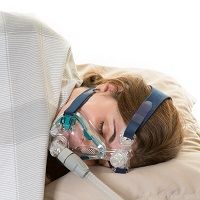Publication
Article
Internal Medicine World Report
Association between Asthma & Apnea, Study Finds
Author(s):
As pulmonary issues like asthma become more prevalent in our population, the links to other potential comorbidities have also gained clarity. A recent study observed the connection between patients diagnosed with asthma and those potentially developing obstructive sleep apnea.

As pulmonary issues like asthma become more prevalent in our population, the links to other potential comorbidities have also gained clarity. A recent study observed the connection between patients diagnosed with asthma and those potentially developing obstructive sleep apnea.
The study, published in the Journal of the American Medical Association, involved Wisconsin state employees who underwent sleep studies in 4-year intervals. The Wisconsin Sleep Cohort Study from 1988 through March of 2013 and involved patients who deemed to be free of OSA of <5 events per hour and not treated by 2 studies. A total of 1,105 studies were provided by 547 participants, of which 52% were women. The average age was 50-years-old.
The authors noted that out of 81 participants who were diagnosed with asthma, 22 experienced OSA in the first 4-year interval. That was more drastic than just 75 of the 466 participants without asthma who showed signs of apnea. During the 4-year intervals of the study period, there were 45 cases of OSA in 167 intervals with asthmatic patients. This compared less favorably to 160 cases of apnea incidents in 938 intervals in patients without asthma issues.
The authors also noted a link between asthmatic patients with new-onset OSA who also reported “habitual sleepiness.”
While individually each condition presented its own set of challenges for patient treatment, the authors said the combined effect of one or more can be even more damaging.
“Accumulating evidence suggests a bidirectional relationship between asthma and OSA, whereby each disorder deleteriously influences the other,” they said. “In cross-sectional epidemiologic studies, the prevalence of sleepiness, snoring, and apnea were significantly higher in participants with asthma.”
Much like asthmatic patients can be affected by apnea, the authors noted that those with apnea can have greater effects from asthma, and that the treatment of one can help the other.
“OSA risk relates to poor overall asthma control during daytime and nighttime,” they noted. “Additionally, OSA treatment leads to improved asthma symptoms, morning peak expiratory flow rates, and quality of life, prompting inclusion of OSA as a potential contributor to poor asthma control in the current asthma clinical guidelines.”
The study was funded by the National Institutes of Health National Heart, Lung, and Blood Institute, National Institute on Aging, and National Center for Research Resources. Additional funding was also provided by the William S. Middleton Memorial VA Hospital in Madison, WI.






